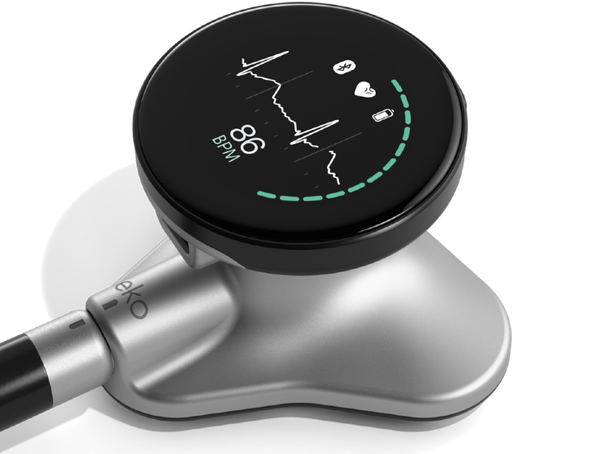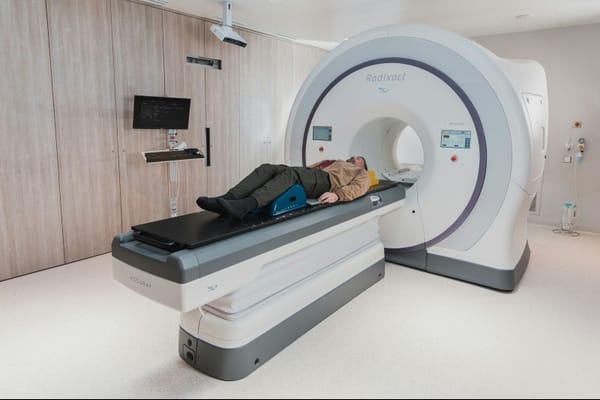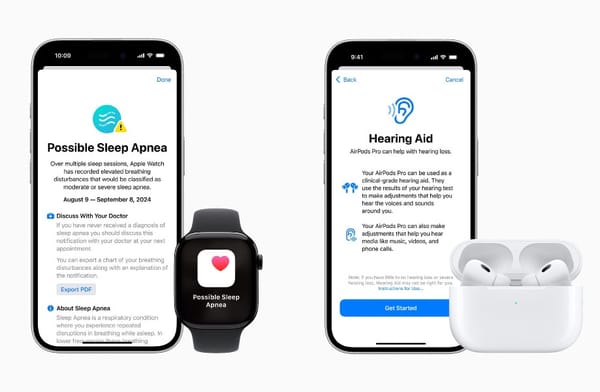The quest for extended human lifespan has taken a new turn, with prominent figures in the pharmaceutical industry suggesting that artificial intelligence (AI) could be the key to significantly increasing human longevity. This article explores the potential of AI to revolutionize longevity research and drug development, examining the challenges, opportunities, and implications of this technological frontier.
Limits of Lifestyle Optimization
At the Fortune Brainstorm AI Singapore conference, Alex Zhavoronkov, founder of Insilico Medicine, emphasized the limitations of traditional approaches to longevity and the need for AI-driven breakthroughs in health sciences. Zhavoronkov argued that despite optimizing diet, exercise, and sleep, people still succumb to aging and disease, highlighting the necessity for more advanced interventions 3. He stressed the importance of AI in developing novel therapeutics and interventions to extend human healthspan, suggesting that a "ChatGPT moment" in longevity research could revolutionize our approach to aging 3. This perspective underscores the potential of AI to accelerate drug discovery and development processes, potentially leading to transformative treatments for age-related diseases and extending healthy human lifespan beyond what is currently achievable through lifestyle modifications alone.
Sources:
- (1) FORTUNE on X: From Fortune Brainstorm AI Singapore: Alex ...
- (2) Meet Insilico in Singapore: Alex Zhavoronkov - EurekAlert!
- (3) Only an AI breakthrough can help humans live longer, argues drug ...
- (4) Brainstorm AI Singapore 2024: The 1,000-Year-Old Human
- (5) Fortune Brainstorm AI Singapore 2024
Current Longevity Research
Current longevity research is making significant strides in understanding the aging process and developing potential interventions to extend human healthspan. Scientists are exploring multiple avenues to slow or reverse biological aging, with promising developments in several key areas:
Epigenetic Reprogramming: Researchers are investigating ways to reset the epigenome, the chemical modifications that control gene expression, to a more youthful state. This approach has shown potential in animal studies for rejuvenating cells and tissues 1.
Cellular Senescence: Targeting senescent cells, which accumulate with age and contribute to inflammation and tissue dysfunction, is a major focus. Senolytics, drugs that selectively eliminate these cells, are being studied for their potential to improve healthspan 1.
Metabolic Interventions: Drugs like rapamycin, which modulates the mTOR pathway involved in cellular growth and metabolism, are being investigated for their life-extending properties. Rapamycin has shown promise in animal studies and is now being tested in human clinical trials 2.
Caloric Restriction Mimetics: Researchers are developing compounds that mimic the beneficial effects of caloric restriction on longevity without the need for dietary changes. These interventions aim to activate cellular pathways associated with increased lifespan 3.
Biomarkers of Aging: Scientists are working to identify reliable biomarkers that can accurately measure biological age. These tools could help assess the effectiveness of anti-aging interventions and personalize treatments 1 4.
Comprehensive Health Assessments: Longevity clinics are emerging, offering detailed health evaluations across multiple organ systems to identify early signs of aging-related decline. These assessments aim to guide personalized interventions for extending healthspan 4.
Targeting Chronic Conditions: Research is focusing on populations at risk for accelerated aging, such as individuals with HIV or chronic kidney disease, to develop interventions that can slow the aging process in these vulnerable groups 4.
While these areas show promise, it's important to note that most research is still in early stages, with many interventions yet to be proven effective in humans. The field faces challenges in translating findings from animal studies to human applications and in developing interventions that are both safe and effective for long-term use 3.
Moreover, researchers emphasize that the goal is not just to extend lifespan, but to increase "healthspan" - the period of life spent in good health. This focus aligns with efforts to improve quality of life and reduce the burden of age-related diseases 1 4.
As the field progresses, there's a growing recognition of the need for interdisciplinary collaboration and increased funding to accelerate discoveries. Initiatives like the Human Longevity Laboratory at Northwestern University are working to validate interventions and understand the complex interplay between chronological and biological age across different organ systems 4.
While the pursuit of dramatic life extension remains a long-term goal, current research is yielding insights that could lead to more immediate benefits in preventing or delaying age-related decline and diseases. As the science advances, it holds the potential to significantly impact healthcare and improve the quality of life for aging populations worldwide.
Sources:
- (1) Scientists can tell how fast you're aging. Now, the trick is to slow it ...
- (2) The real science behind the billionaire pursuit of immortality - Vox
- (3) Science is making anti-aging progress. But do we want to live forever?
- (4) At the Human Longevity Lab, studying methods to slow or reverse ...
AI's Promise in Longevity
AI's potential to revolutionize longevity research and extend human healthspan is rapidly emerging as a game-changing force in the field. By leveraging vast datasets and complex algorithms, AI offers unprecedented capabilities to accelerate discoveries and develop targeted interventions for aging.
One of the most promising applications of AI in longevity research is its ability to analyze and interpret complex biological data. AI systems can process and find patterns in enormous genomic, proteomic, and metabolomic datasets that would be impossible for humans to parse manually. This allows researchers to identify novel biomarkers of aging and potential therapeutic targets much more rapidly than traditional methods 1. For example, AI analysis of gene expression data has revealed new insights into the molecular mechanisms of aging and potential ways to intervene 2.
AI is also transforming drug discovery and development for age-related conditions. Machine learning algorithms can screen vast libraries of compounds to predict which may have anti-aging effects, dramatically accelerating the early stages of drug development 3. AI systems can even design entirely new molecules optimized for specific anti-aging properties. For instance, Insilico Medicine has used AI to develop novel compounds targeting age-related diseases, moving from initial design to preclinical candidate selection in just 18 months 3.
Beyond drug discovery, AI shows promise in developing personalized longevity interventions. By analyzing an individual's genetic, epigenetic, and health data, AI systems can potentially predict personalized aging trajectories and recommend tailored interventions to extend healthspan 2. This level of precision in longevity medicine was previously unattainable.
AI is also enhancing our ability to measure biological age and assess the efficacy of anti-aging interventions. Machine learning algorithms can integrate multiple biomarkers to create more accurate "aging clocks" that reflect biological rather than chronological age 1. This allows for more precise tracking of how interventions affect the aging process.
The integration of AI with other cutting-edge technologies like stem cell research is opening new frontiers in regenerative medicine. AI can optimize protocols for stem cell differentiation and tissue engineering, potentially leading to breakthroughs in repairing or replacing aged tissues 2.
While the full potential of AI in longevity research is still emerging, early results are highly promising. As Alex Zhavoronkov, CEO of Insilico Medicine, notes, "AI technologies are transforming the biotech landscape by accelerating the discovery of new drug candidates, predicting molecular behaviors, and optimizing clinical trials" 3. This acceleration could lead to rapid advancements in our ability to extend healthy human lifespan.
However, it's important to note that realizing AI's full potential in longevity research will require overcoming significant challenges, including data quality and integration issues, ethical considerations, and the need for rigorous validation of AI-generated insights in biological systems 4. Nonetheless, the convergence of AI and longevity science holds immense promise for reshaping our approach to aging and potentially extending human healthspan in ways previously thought impossible.
Sources:
- (1) Towards AI-driven longevity research - Artificial Intelligence Congress
- (2) AI Unlocks the Secrets of Longevity - LinkedIn
- (3) AI for longevity drug discovery: Breakthrough - EurekAlert!
- (4) AI and Big Data in Longevity Research - SGInnovate
AI-Driven Drug Discovery
AI-driven drug discovery is revolutionizing the pharmaceutical industry by accelerating the process of identifying and developing new therapeutic compounds. This approach leverages artificial intelligence and machine learning algorithms to analyze vast amounts of data, predict molecular properties, and design novel drug candidates with unprecedented speed and efficiency.
One of the key advantages of AI in drug discovery is its ability to rapidly screen and evaluate enormous chemical libraries. Traditional methods of high-throughput screening are time-consuming and expensive, but AI can virtually screen millions of compounds in a fraction of the time 1. For example, AI systems can predict the binding affinity of molecules to specific protein targets, allowing researchers to prioritize the most promising candidates for further testing.
AI is also being used to generate entirely new molecular structures optimized for specific properties. De novo drug design algorithms can create novel compounds that have never been synthesized before, potentially leading to breakthrough therapies for challenging diseases 2. This approach expands the chemical space explored in drug discovery far beyond what is possible with conventional methods.
Another critical application of AI is in predicting the properties of drug candidates, such as toxicity, bioavailability, and efficacy. Machine learning models trained on large datasets can make accurate predictions about a compound's behavior in biological systems, helping to identify potential issues early in the development process and reduce the likelihood of costly failures in clinical trials 3.
The integration of AI into drug discovery has led to significant time and cost savings. According to some estimates, AI has saved drug developers up to 40% in costs through optimization in the discovery stages 4. This efficiency gain is crucial in an industry where the traditional drug development process can take over a decade and cost billions of dollars.
Several AI-designed drug candidates have already entered clinical trials, marking a significant milestone in the field. For instance, Exscientia announced the first AI-designed drug molecule to enter human clinical trials in early 2020 1. This achievement demonstrates the potential of AI to not only accelerate the early stages of drug discovery but also to produce viable candidates for further development.
The pharmaceutical industry has taken notice of these advancements, with 95% of pharma companies reportedly using AI in discovery phases as of early 2024 4. This widespread adoption indicates a growing recognition of AI's potential to transform the drug development landscape.
However, it's important to note that AI is not a magic solution and faces several challenges in drug discovery. Data quality and quantity remain significant issues, as AI models are only as good as the data they are trained on. Ensuring the accuracy and relevance of training datasets is crucial for developing reliable AI systems 3.
Additionally, while AI can generate promising drug candidates, these still need to undergo rigorous testing and validation in biological systems. The complexity of human biology means that AI predictions must be carefully verified through experimental studies 2.
Despite these challenges, the future of AI in drug discovery looks promising. As AI technologies continue to advance and more high-quality data becomes available, we can expect even more sophisticated applications in the field. The integration of AI with other cutting-edge technologies, such as genomics and precision medicine, may lead to more personalized and effective drug development strategies.
In conclusion, AI-driven drug discovery represents a paradigm shift in the pharmaceutical industry, offering the potential to dramatically reduce the time and cost of bringing new therapies to market. While challenges remain, the ongoing advancements in this field suggest that AI will play an increasingly central role in shaping the future of drug development and, by extension, human longevity.
Sources:
- (1) How Artificial Intelligence is Revolutionizing Drug Discovery
- (2) Inside the nascent industry of AI-designed drugs | Nature Medicine
- (3) Artificial intelligence in drug discovery and development - PMC - NCBI
- (4) AI Driven Drug Discovery Summit USA 2024
Challenges and Limitations
While AI holds immense promise for revolutionizing drug discovery and longevity research, several significant challenges and limitations must be addressed:
Data Quality and Availability: One of the primary challenges in AI-driven drug discovery is the need for high-quality, diverse, and properly labeled data. AI algorithms require vast amounts of reliable information to generate accurate predictions and insights 1. However, much of the available data in pharmaceutical research may be incomplete, inconsistent, or biased, potentially leading to inaccurate results 2. Ensuring data standardization and metadata consistency across different sources remains a significant hurdle 3.
Ethical Considerations: The use of AI in drug development raises important ethical questions, particularly regarding fairness and bias 2. If the data used to train AI models is not representative of diverse populations, it could lead to biased outcomes and exacerbate existing health disparities 2. Addressing these ethical concerns is crucial for ensuring the responsible development and application of AI in longevity research.
Complexity of Biological Systems: Despite advancements in AI, the human body's complexity poses a significant challenge. AI models may struggle to fully capture the intricate interactions within biological systems, potentially leading to oversimplified predictions or overlooking important factors 1. The gap between in silico predictions and in vivo realities remains a substantial limitation.
Validation and Reproducibility: AI-generated predictions and drug candidates still require extensive experimental validation. The high costs associated with clinical trials and the potential for false positives in AI predictions can lead to expensive failures 4. Additionally, the "black box" nature of some AI algorithms makes it difficult to interpret and explain their decision-making processes, which is crucial for regulatory approval and scientific understanding 1.
Regulatory Challenges: The rapid pace of AI development in drug discovery outpaces current regulatory frameworks. Regulatory bodies are still adapting to evaluate AI-driven approaches, which can slow down the approval process for novel AI-designed drugs 4.
Integration with Existing Workflows: Incorporating AI into established drug discovery pipelines requires significant changes to existing processes and infrastructure. Many pharmaceutical companies face challenges in seamlessly integrating AI technologies with their current workflows and systems 3.
Computational Resources: Training and deploying sophisticated AI models, especially large language models, requires substantial computational power. The high costs associated with these resources can create barriers for smaller research institutions or companies, potentially limiting innovation in the field 5.
Overreliance on AI: There's a risk of overestimating AI's capabilities and undervaluing human expertise. AI should be seen as a tool to augment human decision-making rather than replace it entirely. Balancing AI insights with human judgment and expertise remains crucial 2.
Interdisciplinary Collaboration: Effective AI implementation in longevity research requires collaboration between AI experts, biologists, chemists, and clinicians. Bridging the knowledge gap between these disciplines and fostering effective communication can be challenging 5.
Long-term Effects: The long-term effects of AI-designed interventions on human health and longevity are still unknown. Given the complexity of aging processes, it may take decades to fully understand the impact of AI-driven approaches on human lifespan and healthspan 1.
Addressing these challenges will be crucial for realizing the full potential of AI in drug discovery and longevity research. As the field evolves, ongoing efforts to improve data quality, enhance model interpretability, and develop appropriate regulatory frameworks will be essential for overcoming these limitations and advancing the use of AI in extending human healthspan.
Sources:
- (1) The Role of AI in Drug Discovery: Challenges, Opportunities, and ...
- (2) [PDF] The Role of AI in Drug Discovery: Challenges, Opportunities ... - arXiv
- (3) Challenges and opportunities of AI in drug development
- (4) AI in Drug Discovery: Opportunities, Challenges, and the Road Ahead
- (5) Perspective on the challenges and opportunities of accelerating ...















Member discussion